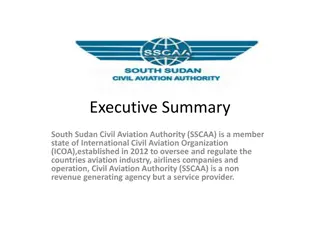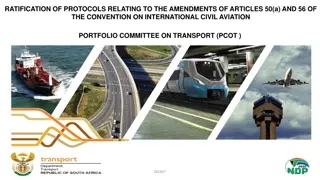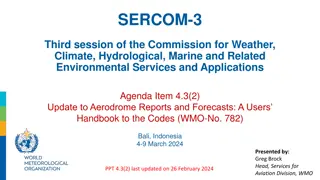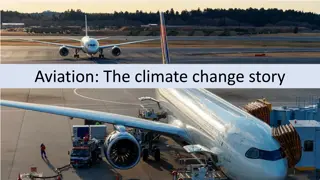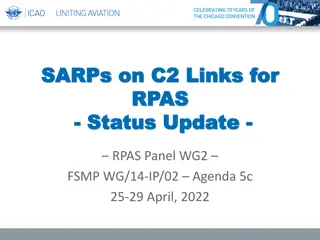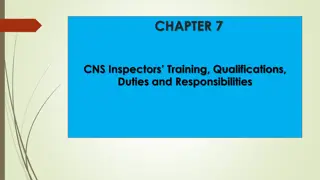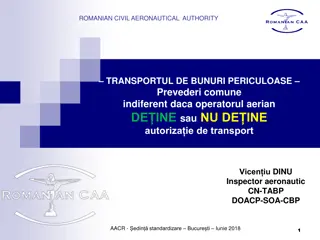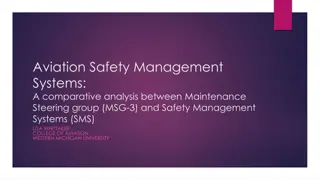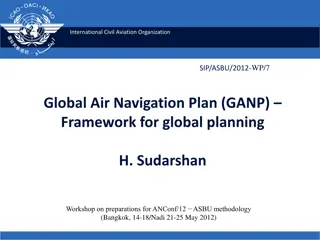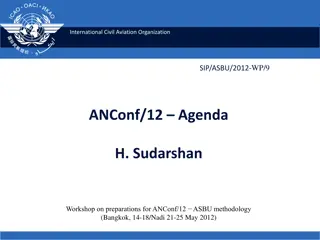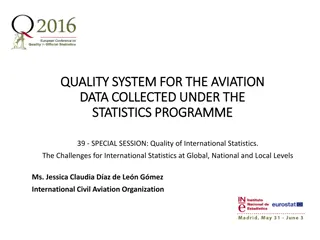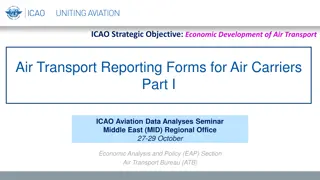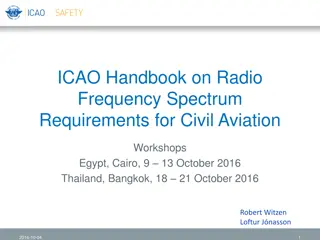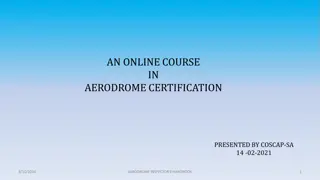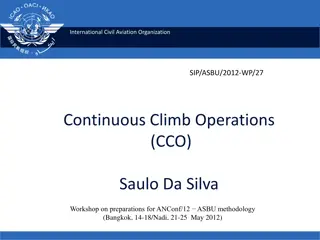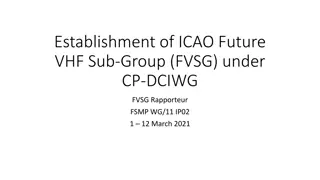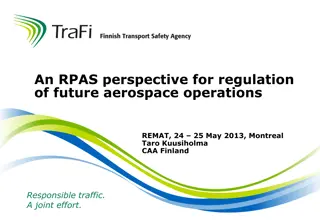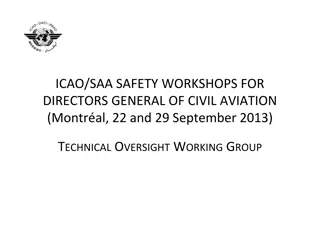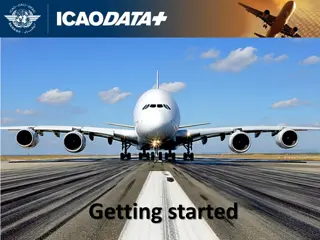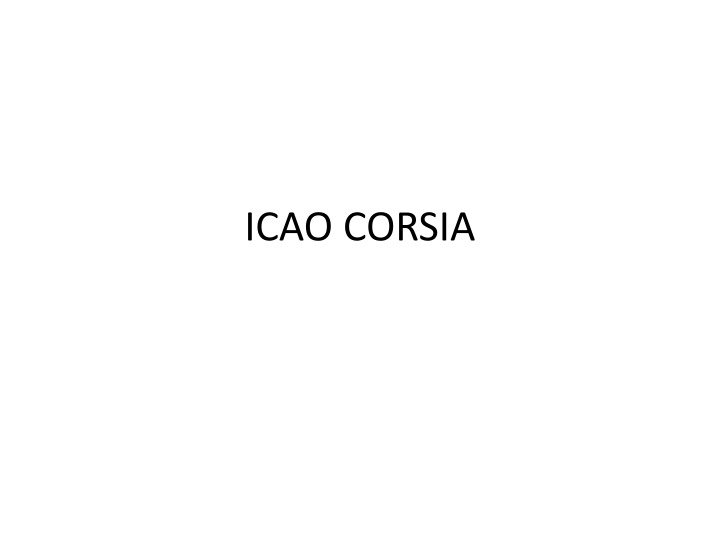
ICAO CORSIA: Sustainable Aviation Fuel Criteria and Compliance Details
The International Civil Aviation Organization (ICAO) adopted the CORSIA package in 2017, focusing on criteria for alternative fuels, emissions unit eligibility, and sustainability. The package includes thresholds for alternative fuels and amortization periods, with ongoing work on sustainability certification schemes and criteria. Compliance with themes like water, soil, air, and human rights is monitored through independent attestation. The CORSIA Sustainability Criteria for Sustainable Aviation Fuels aim to set a standard for environmental protection in aviation.
Download Presentation

Please find below an Image/Link to download the presentation.
The content on the website is provided AS IS for your information and personal use only. It may not be sold, licensed, or shared on other websites without obtaining consent from the author. If you encounter any issues during the download, it is possible that the publisher has removed the file from their server.
You are allowed to download the files provided on this website for personal or commercial use, subject to the condition that they are used lawfully. All files are the property of their respective owners.
The content on the website is provided AS IS for your information and personal use only. It may not be sold, licensed, or shared on other websites without obtaining consent from the author.
E N D
Presentation Transcript
CAEP Approval CAEP approved the CORSIA package at SG/2 in September 2017 Main discussion: thresholds for alternative fuels and amortization period for alternative fuels. (10% and 25 years). Where to put the EUC-criteria
ICAO Council Adoption ICAO Council adopted the CORSIA-package 10th of November 2017: Main discussion: where to put EUC-criteria in the package and the sustainability criteria for alternative fuels. Europeans had the most ambitious environmental positions concerning CORSIA.....
EUC - Outcome Compromise reached concerning EUC, the following text is now in the actual Annex IV of Annex 16: The CORSIA Eligible Emissions Units are determined by the Council, upon recommendation of a technical advisory body established by the Council, and meet the CORSIA Emissions Unit Eligibility Criteria. The CORSIA Emissions Unit Eligibility Criteria are approved and may only be amended by the Council, with the technical contribution of CAEP, taking into account relevant developments in the UNFCCC and the Paris Agreement. The emissions units generated from mechanisms established under the UNFCCC and the Paris Agreement are eligible for use in CORSIA, provided that they align with decisions by the Council with the technical contribution of CAEP, including on avoiding double counting and on eligible vintage and timeframe
Sustainability criteria - outcome CORSIA Sustainability Criteria for Sustainable Aviation Fuels will include the criteria described in the table below.
Sustainability criteria - outcome Compliance with Themes 1 and 2 is granted on the basis of independent attestation by CORSIA approved Sustainability Certification Schemes; Work on other themes such as Water; Soil; Air; Conservation; Waste and Chemicals; Human and labour rights; Land use rights and land use; Water use rights; Local and social development; and Food security, and related criteria, and on the application of these criteria, is ongoing under the Committee on Aviation Environmental Protection (CAEP) and will be subject to approval by the Council by the end of the pilot phase; CORSIA Sustainability Criteria for Sustainable Aviation Fuels does not set a precedent for, or prejudge the outcome of negotiations in other fora.
What happens now? State Letter Consultation process The final version of the CORSIA package will hopefully be decided by the ICAO Council in June 2018 Starting from 1 January 2019 all Aircraft Operators flying on international flights will have to start monitoring their fuel and emissions in order to establish the baseline which will be based on the average of year 2019 and 2020

